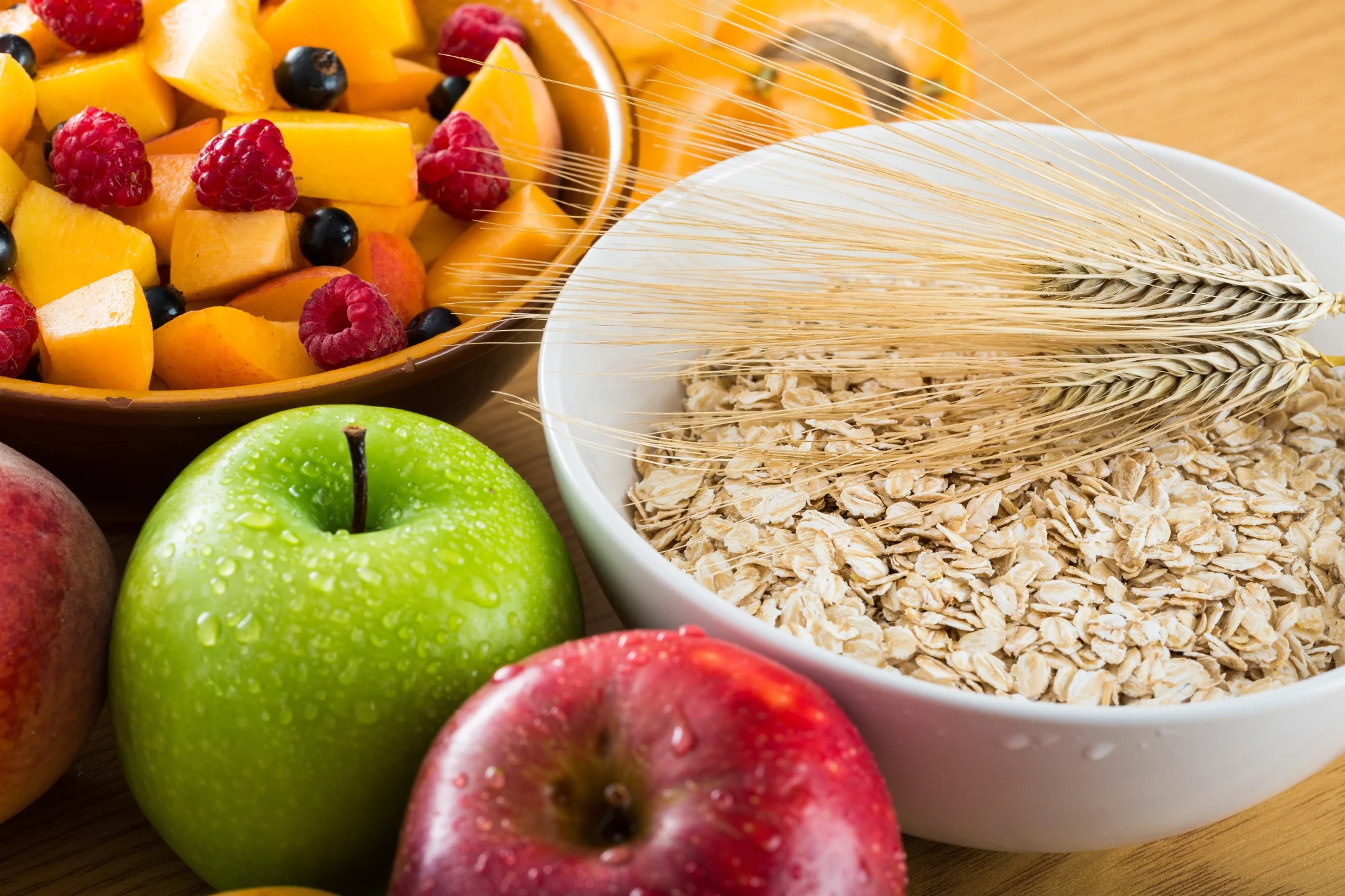News & Articles

How Fibre Helps Protect Against Cancer

More fibre, less chance of cancer
Parkway Cancer Centre’s Senior Dietitian Gerard Wong explains how fibre can help protect your colon from carcinogens. It is common knowledge that fibre aids in digestion and keeps your digestive system clean and healthy. But a diet high in fibre can also help to keep diseases like colon cancer at bay.
What is fibre?
Dietary fibre or roughage is made up of the indigestible parts or compounds of plants, which passes relatively unchanged through our stomach and intestines. It is found in most cereals, such as wheat bran and oat bran, legumes (beans, lentils, peas), nuts, fruits and vegetables. There are two types of fibre – soluble and insoluble. Each type of fibre helps our body in different ways, so a healthy diet should consist of both types. Good sources of soluble fibre include fruits, vegetables, oats, barley, legumes, lentils, peas, and soy products. Insoluble fibre, which is what we term roughage, consists of all types of bran, the skins of fruits and vegetables, nuts, seeds, dried beans, and whole grain foods. Insoluble fibre, is particularly useful in the prevention of constipation.
Why do I need fibre?
Besides keeping the digestive system healthy and preventing constipation and related bowel problems, fibre also helps to improve cholesterol levels, aids diabetes management (high-fibre foods usually have a lower glycemic index), and reduces the risk of certain types of cancer such as colon cancer. The World Cancer Research Fund has consistently maintained its stance that fibre protects the colon against colon cancer. As our body’s waste often contains carcinogens, it is best if it is removed as quickly as possible. By consuming fibre, you are adding bulk to your digestive system and enabling your stool to pass through the intestines quicker. The added bulk in stools also has the effect of diluting the harmful effects of carcinogens. Regular bowel movement also shortens the amount of time that waste travels through the colon, thereby decreasing chances for intestinal cells to be affected by carcinogens. In addition, when bacteria in the lower intestine breaks down fibre it produces a substance called butyrate, which may further inhibit the growth of tumours of the colon and rectum. Eating more fibre helps you stay full longer, which is helpful for maintaining a healthy weight or if you are trying to lose weight.
How can I increase fibre intake?
An average Singaporean consumes about 13g of dietary fibre daily. However, according to Singapore Health Services, the recommended fibre intake is approximately 30g a day. This roughly equates to two servings of fruit and two servings of vegetables per day. Including two to three servings of whole grains can also help to meet your daily dietary fibre needs. Here are some simple suggestions to increase your daily fibre intake:
- Have a high-fibre breakfast cereal. Be sure to read the nutrition information carefully. Aim for cereals with more than 6g fibre per 100g. You can try wheat bran or whole grain wheat cereals or eat oats for breakfast.
- Opt for multigrain or whole grain breads as well as whole wheat pasta, bulgur wheat or brown rice.
- Eat a larger portion of vegetables at every meal.
- Rather than drinking juice, consume the whole fruit instead. Two servings of fresh fruit a day is optimal.
- Snack on healthy tidbits such as carrot or vegetable sticks, rye crackers and unsalted nuts or seeds.
Written by Charmaine Ng
| POSTED IN | Nutrition |
| TAGS | cancer diet & nutrition, carcinogen, prevent cancer, reduce cancer risk, weight management |
| PUBLISHED | 15 September 2017 |
